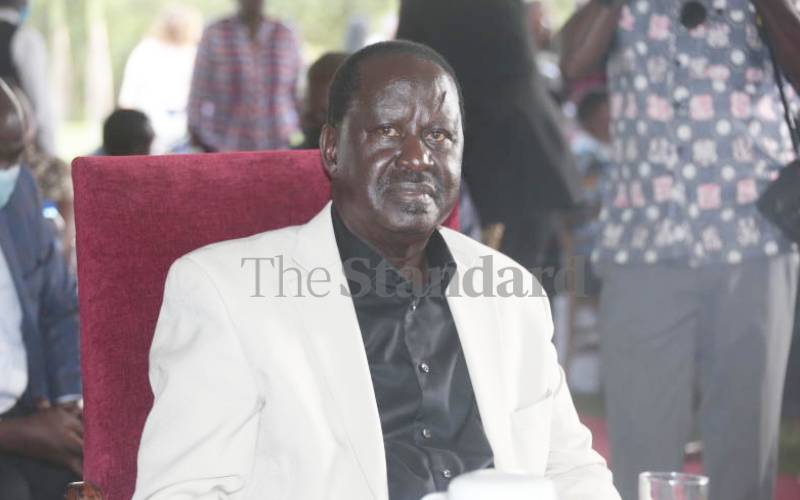×
The Standard e-Paper
Stay Informed, Even Offline

ODM leader Raila Odinga during the Mt.Kenya Leaders Forum at a Nairobi hotel on December 8, 2021. [Boniface Okendo, Standard]
Last bullet. Final card. ODM leader Raila Odinga was not expected to have been a leading presidential contender in the 2022 General Election.